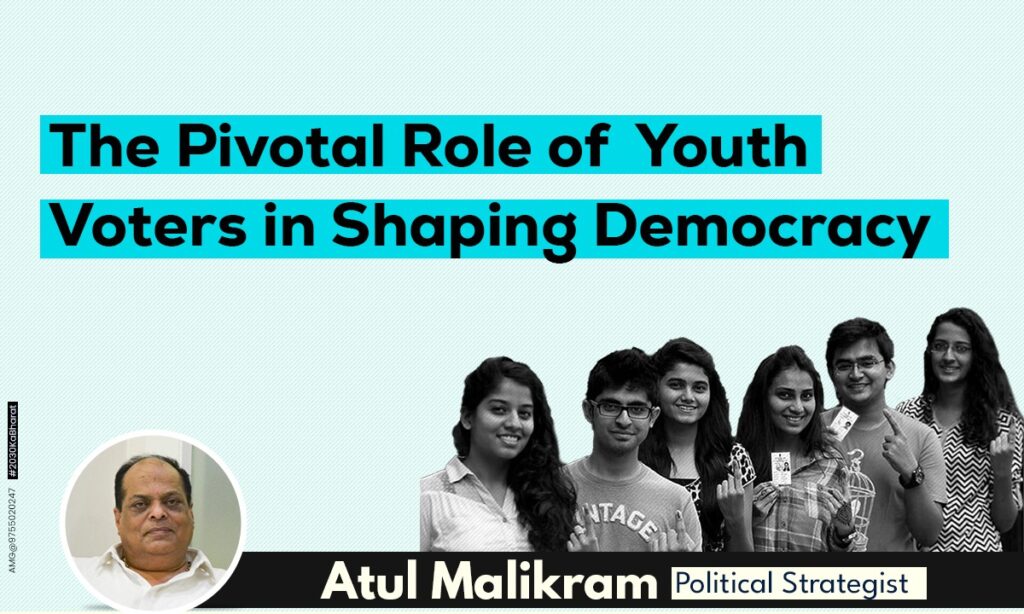The significance of young voters in India is pivotal, driven by their substantial numbers and potential to impact democracy profoundly. As a key demographic, the youth wield influence over electoral outcomes, shaping policies and the political landscape, representing the nation’s future. In India’s 18th Lok Sabha General Elections, their involvement is crucial, especially for first-time voters, offering an opportunity to transcend ideologies and actively shape the future through meaningful engagement.
If we talk about the ongoing assembly election, In 31 Madhya Pradesh constituencies, young or first-time voters aged 18-19 surpass winning margins, emphasizing the potential impact of the youth demographic. In Rajasthan, 132 seats boast a majority of voters within the 18-39 age bracket, constituting 51% or more of the total electorate. In Chhattisgarh, 18.68 lakh individuals aged 18-22 cast their first votes in the assembly polls.
Why Youth voters are important in India?
Youth Power in Democracy
India’s youth population forms a potent voting bloc, capable of profoundly influencing electoral outcomes and shaping the nation’s political trajectory. As a pivotal segment of the electorate, the collective voice of the youth has the potential to guide the governance of the nation.
Catalysts for Progress
The youth are not mere observers; they are dynamic agents of change marked by fresh perspectives and an eagerness for transformation. Their openness to new ideologies positions them as catalysts for progress in the political landscape.
Addressing Youth centered issues
Confronting unique challenges in education, employment, and healthcare, the youth can influence policy priorities by turning out in large numbers at the polls. Their participation exerts pressure on political parties to address the specific issues confronting the younger generation.
Fostering a Representative Democracy
To counter-historical trends of low youth voter turnout, essential steps are needed to combat voter apathy and foster a more representative democracy. Recognizing the youth vote’s potential, political parties focus on pertinent issues and offer incentives to attract young voters, incorporating their concerns into policy agendas.
Shaping Inclusive Policies
Youth participation actively contributes to the formulation of more inclusive, progressive, and youth-centric policies. By engaging in the democratic process, the youth ensure that governance aligns with their aspirations, fostering a society responsive to the evolving needs of its younger constituents.
Unleashing Youth Potential
A robust youth voter turnout strengthens the democratic fabric, reinforcing the principle that the government is a representation of the will of the people, accountable to their diverse needs and demands.
Encouraging Political Engagement
To harness the full potential of the youth vote, political awareness and engagement among young people must be encouraged. Improving voter registration processes and cultivating an environment where the youth feel empowered to participate actively in shaping the nation’s future are essential.
Acknowledging Youth Concerns
Political parties and policymakers must take the concerns of the youth seriously, actively working towards addressing their specific issues and aspirations. This acknowledgment is crucial, recognizing the pivotal role of the youth in sculpting the destiny of the nation.
The active and informed participation of young voters is not only a testament to the potential of democracy but a catalyst for a vibrant, inclusive, and forward-thinking India. Their voices, choices, and aspirations shape the nation’s path, ensuring a future aligned with the dynamic needs of its evolving youth population.

